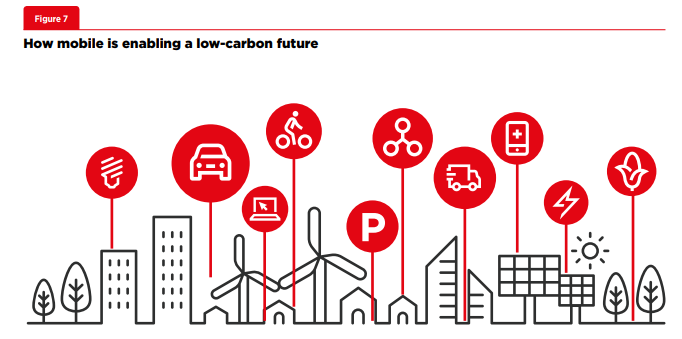We appreciate the efforts of GenCell Energy towards MWC 2020 Barcelona to rally the telecom industry to transition to sustainable energy. To support these efforts, please read the post below and share details of any other telecom projects supporting transition to sustainable energy that you know about in the form at the bottom of the published post here.
As the telecom industry welcomes in the new decade, combatting climate change and protecting our planet are at the epicenter of policy and strategy. MWC2020 Barcelona takes place at a time when government, industry and corporate leaders are coming together to lead the transition to a sustainable, low-carbon future. Acknowledging its key role as a part of the solution, the telecom industry is taking responsibility to ensure that the intelligent connectivity behind the diverse digital solutions underlying our society/world run on clean, emission-free power. MWC2020 core messaging states that the world needs, now more than ever, for the telecom sector to be a fundamental contributor to creating a safe, clean and equitable world for all, in which the connected technology industries hold responsibility for the environment and underserved people, including the unconnected and accessibility for all.
The GSMA has galvanized its members to participate in industry-wide and operator-specific initiatives executing the transition towards a zero-carbon economy through plans for disclosure, emissions target setting and by making a clear commitment alongside many of its members to be net zero by 2050. Towards MWC2020, we survey some of the actions that MNOs are taking to make the transition to sustainable energy a reality.
Source: GSMA 2019 Mobile Industry Impact Report
More than 50 operators joined the GSMA-led initiative agreeing to disclose details about the environmental impact of their businesses as a step in carbon reduction roadmap. In Q2 2019 mobile operator groups participating in the initiative accounted for some 5.2 billion mobile connections, representing 66% of total global mobile connections excluding IoT. GSMA operator members that are disclosing via CDP include América Móvil, AT&T Inc., Axiata Group, Bell Canada, Bharti Airtel, BT Group, China Mobile, China Telecom, China Unicom, Chunghwa Telecom, Deutsche Telekom, DNA Plc, Elisa Corporation, Far EasTone, Globe Telecom, Inmarsat, KDDI Corporation, KPN, KT Corporation, LG Uplus, Magyar Telekom, Millicom International, MTN Group, MTS, NTT DOCOMO, Oi Móvel, Orange Group, Proximus, Reliance Jio, Rogers Communications, Singtel, SK Telecom, SoftBank Corp., Spark New Zealand, Sprint Corporation, StarHub, STC, Sunrise, Swisscom, T-Mobile USA, Taiwan Mobile, Tele2 AB, Telecom Italia, Telefónica, Telekom Austria, Telenor Group, Telia Company, Telkom SA, Telstra Corporation, TELUS Communications, TIM Brasil, True Corp., Turkcell, Verizon, Vodacom Group, Vodafone Group and Zain Group.
We took a look at how different telecom companies are taking action to combat climate change by transitioning to sustainable energy:
We list only a few examples here, we invite you to fill out the form below to share your sustainable energy goals and plans:
AT&T is working towards its 10x Carbon Reduction Goal to enable greenhouse gas (GHG) savings 10x the footprint of its operations by 2025; it advances technology and IoT solutions that are helping to reduce GHG emissions.
Vodafone – launched a target to halve its environmental impact, reduce GHG emissions by 50% and purchase 100% renewable electricity by 2025.
Telefonica – reached its 2020 emissions, energy efficiency and renewable energy goals two years early, in 2018. The company has committed to consuming 100% renewable electricity by 2030 and pledges to become carbon-neutral by 2050.
Verizon – has committed to source or generate renewable energy equivalent to 50% of its total annual electricity usage and 24 megawatts
of additional on-site green energy by 2025
T-Mobile USA – joined RE100–a global initiative uniting businesses committed to using 100% renewable energy with a target to cover 100% of T-Mobile energy consumption by 2021.
BT Group – is committed to achieving net zero carbon emissions by 2045 and to cut GHG emissions intensity by 87% by 2030. BT exceeded its target with 139 of its top suppliers using renewable energy in 2019 (target was for 125 supplies by 2020).
Telenor – co-financed and supported the SMARTer 2030 report aiming for carbon emissions of up to 20% by 2030.
Telia – set daring goals: Telia intends to become the world’s greenest telco: zero CO2 and zero waste by 2030.
Sprint – follows a path to reaching 100% carbon neutrality by 2025 via directly reducing Sprint’s overall energy consumption as well as via investments in alternative energy that offset carbon emissions.
Orange Group – elects to be regularly assessed by EcoVadis, the world leader in sustainability ratings and scored 79/100, in the top 1% of telecom companies assessed by EcoVadis.
Please help us raise awareness for telecom providers’ initiatives to transition to sustainable energy sources by sharing details about more such initiatives in the form at the bottom of our blog post here: https://www.gencellenergy.com/news/telecoms-transition-to-sustainable-energy-how-about-you/
Thanks so much and hope to see you at MWC2020 Barcelona!


